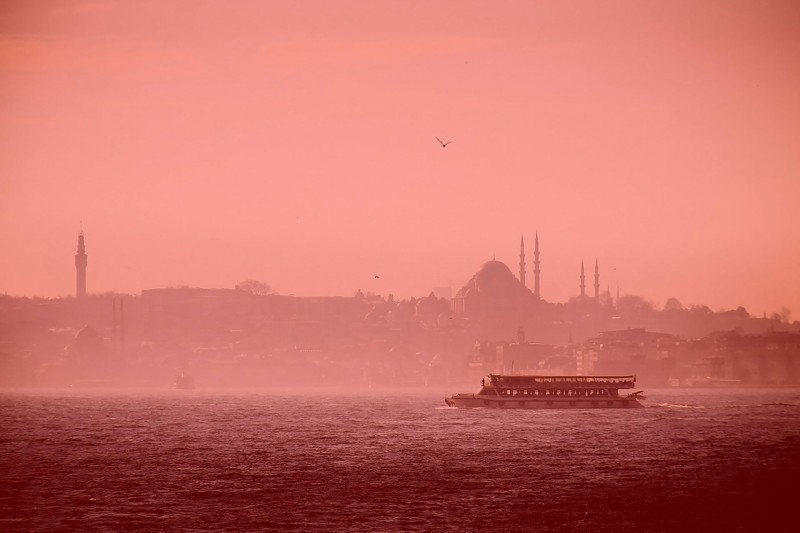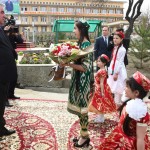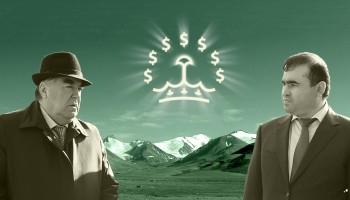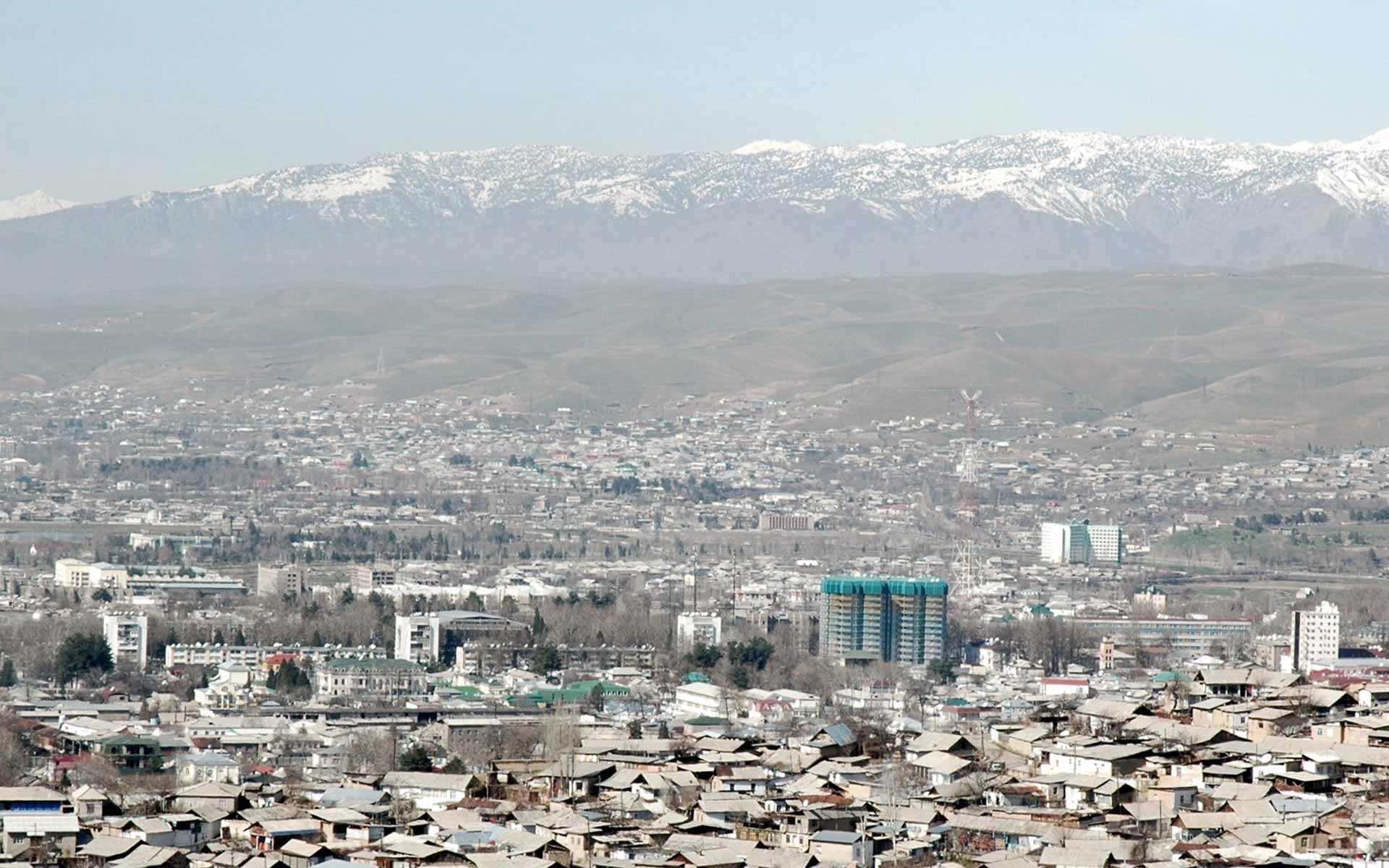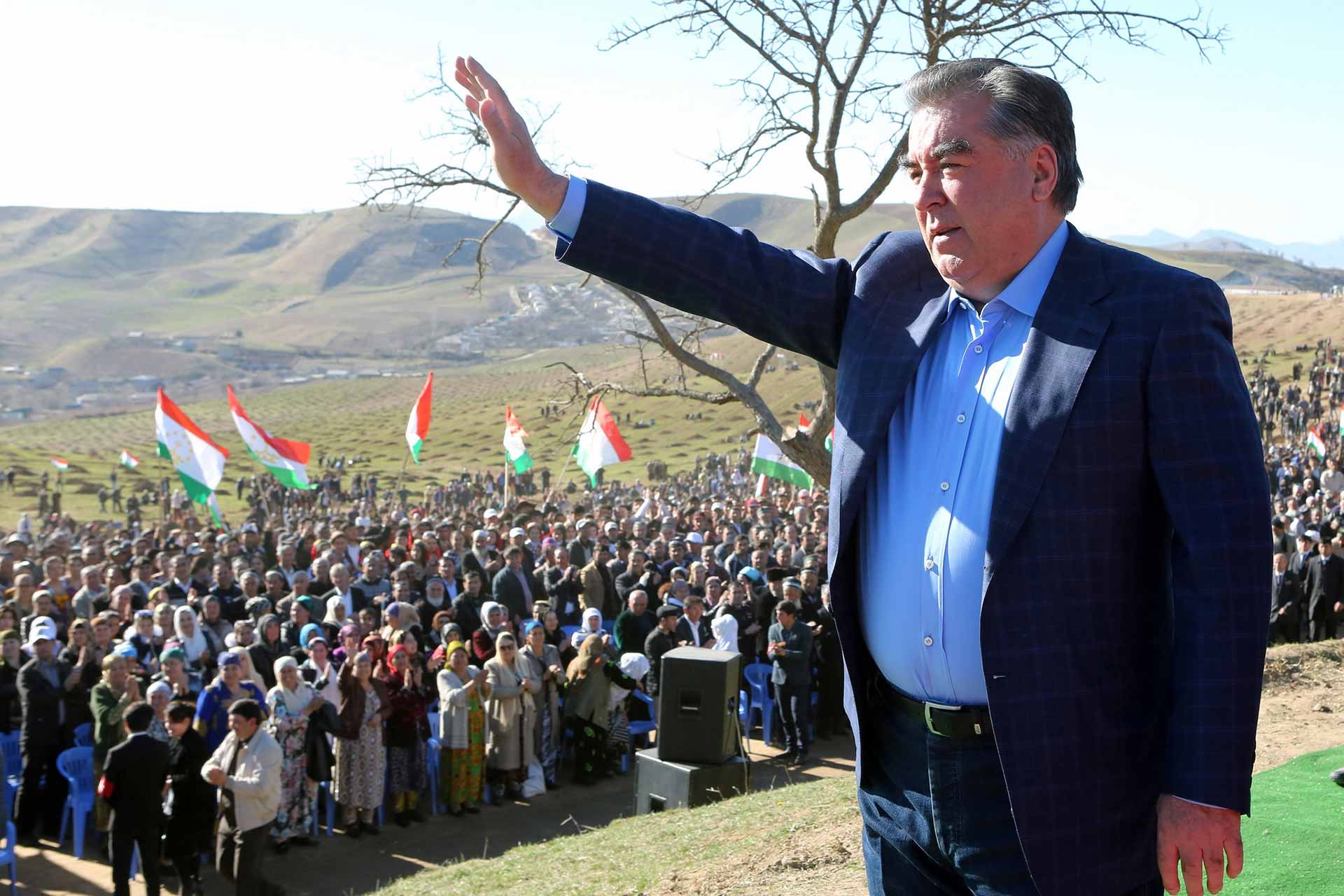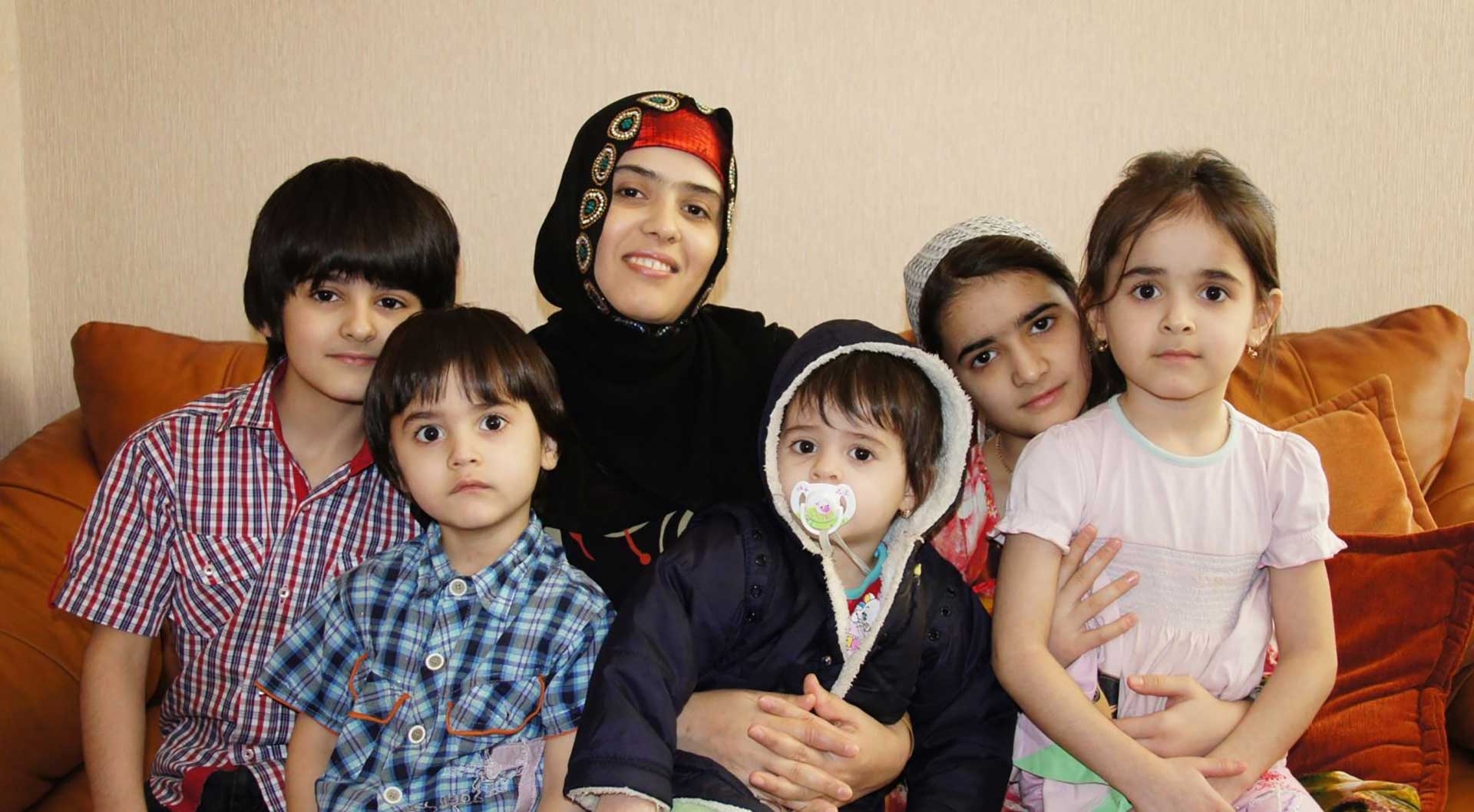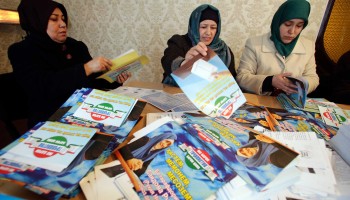It was early spring in the historic heart of Istanbul.
Umarali Kuvvatov — once a wealthy Tajik entrepreneur, then an exile, then a prisoner, and finally an outspoken activist against his country’s authoritarian regime — had reached the end of his strange journey. He lay in the road, dying from a single gunshot wound.
“I almost lost my mind when he died in my arms,” says his widow, Kumrinisso Hafizova. “There was so much blood. In my whole life I had never seen a person die. And this was my husband, my dearest.”
Kuvvatov, his wife, and the couple’s two sons had been invited to dinner at the home of a fellow expat from Tajikistan. Over the course of the meal, the entire family abruptly fell ill. In Hafizova’s recollection, they could barely talk. She says her husband literally dragged them outside to look for a taxi while hardly being able to walk himself. That’s when his killer shot him.
By the time the police arrived, her husband was dead.
How did Umarali Kuvvatov meet such a horrific end so far from home?
His murder marked the end of an extraordinary and varied life — one that says much about the kind of country Tajikistan, the poorest and most underdeveloped of the former Soviet republics, had become.
Just a few years earlier, Kuvvatov had been a successful entrepreneur, making millions in trade, construction, and oil. But his eventual fate hinged on a partnership he developed with a man named Shamsullo Sakhibov. Together, the two grew their businesses and became wealthy selling oil to NATO forces in Afghanistan.
The partnership was particularly important for Sakhibov, the younger man, for whom Kuvvatov was initially a kind of mentor. His guidance helped Sakhibov make the wise political and financial decisions needed to get ahead, including the most important decision he would ever make — marrying into the ruling family. Sakhibov married Rukhshona Rahmonova, the third of the seven daughters of Tajikistan’s president, Emomali Rahmon.
But that’s when their fates diverged. As Sakhibov rose in stature, he grew influential enough to wrest Kuvvatov’s business away from him. Through his connections, he then grew the company, Faroz, into an all-consuming empire with interests in everything from driving schools to steel mills. (See: When the Country Is a Business).
Meanwhile, Kuvvatov was hounded from his homeland, where he faced imprisonment on several charges. While in exile, he turned into an outspoken opposition leader, highlighting the corruption that underpins Tajikistan’s authoritarian rule even as, his friend and relatives insist, its agents pursued him.
He became a hunted man, fleeing first to Russia, then being imprisoned twice — once in Dubai and once in Turkey — at the insistence of Tajik authorities. All the while, the pro-government media besmirched his reputation at home and anonymous callers threatened his wife by phone. In the end he couldn’t flee far enough, finally paying the ultimate price for defying Tajikistan’s rulers.
His violent death — poisoned, then shot on the street in front of his wife and children — sheds light not only on the extreme measures Tajikistan’s regime will take to repress its enemies. It also shows what can happen in the country when you rise to any level of business prominence: It could all be taken from you in an instant.
Neither Tajikistan’s presidential administration nor Sakhibov responded to requests for comment.
The Disappearing Chairman
Since taking over Faroz, the company Kuvvatov founded and once led, Sakhibov has turned it into a giant. Meanwhile, Kuvvatov’s own history with the company is nowhere to be found — it’s as if he had never existed.
His former leadership is still barely discernible in long-forgotten media reports. As late as 2011, Russian and Tajikistani outlets cited him as Faroz’s chairman. And a video from that time shows him alongside Azamat Kasimov, the company’s long-time CEO, at a press conference about railway logistics.
But today, Kuvvatov is barely mentioned in the news and he’s not listed on the company’s web site. In fact, Faroz has officially denied that he was ever involved at all.
“He does not hold and has never held any position in the structures of the company and he has never been among its founders,” read a letter issued by Faroz in 2012. It referred to documents in the company’s possession, and others held at the justice and tax ministries, which “do not contain the name Umarali Kuvvatov.”
But these documents are nearly impossible to obtain and verify. Tajikistan is one of the world’s most challenging countries for independent journalism. Normally, its business records are not available to outsiders, and even Tajik citizens who want to examine the companies registry are asked to submit copies of their passports and can expect to be questioned by security services.
That’s why much of the available information about Kuvvatov, Faroz, and Sakhibov — the man who took the company away from him — comes from personal recollections rather than government documents or business records.
To get a fuller picture of Kuvvatov’s downfall, OCCRP reporters spoke with his widow, now in exile; his lawyer in Russia; and his nephew, Sharofiddin Gadoev, who was on the run from the regime in Europe. They were able to tell the story of Shamsullo Sakhibov’s rise, explaining how a young man who began as Kuvvatov’s apprentice ended up taking him down.
(Faroz did not respond to OCCRP’s repeated requests for comment.)
“Just a Village Guy”
In Gadoev’s telling, the foundation of Sakhibov’s success was laid in the late 1970s. At that time, Emomali Rahmon, now Tajikistan’s president, worked in the city of Qurghonteppa, some 100 kilometers south of the capital. In those years, the future leader was often a guest at the home of Sakhibov’s grandfather.
After Rahmon became president in 1994, the elder Sakhibov became an influential local official.
As a result, Gadoev recalls, when he asked Kuvvatov, who had a fuel import business in the area, to mentor his grandson in the early 2000s, the businessman could not refuse the favor. That was likely the start of young Shamsullo Sakhibov’s path to success.
In a September 2012 interview, Kuvvatov recalls his first impression of the young man. “I saw some kind of future in that boy. I saw that he spoke honestly and tried to work [hard],” he said.
Kuvvatov’s widow recalls Sakhibov depending on her husband for practically everything. “Shamsullo was just a village guy, he didn't know anything. He couldn't even speak Russian well. And everything he learned, he learned from my husband.”
She also recalls an almost familial closeness between the two men. “They said their friendship would be to the end. [Sakhibov] wanted to have a daughter who would marry my son. … He was very close to Umarali. When he came from America or London one year ... he didn’t even eat dinner at his place. He was always in our home.”
In Gadoev’s telling, Sakhibov went to study in the United States with Kuvvatov’s financial support, where he met his future wife — the president’s daughter — who was also studying there. Kuvvatov’s endorsement, his nephew recalls, was crucial in getting President Rahmon to approve of the marriage. The couple wed in 2005. And it was after the wedding that Sakhibov’s apprenticeship with Kuvvatov evolved into a true business partnership.
Gadoev Loses It All
The Turning Point
“After the marriage, everything changed,” Kuvvatov later told an interviewer. “When it came to questions of money, power, and politics, I became completely disappointed in that boy. I saw that person had changed. All the pain and troubles that my people were experiencing no longer concerned him.”
An apparent struggle between the two men burst into the open in the summer of 2012, when Kuvvatov publicly accused Sakhibov of taking over his businesses.
Most media accounts refer to the affair as a “business dispute.” But Tajikistan is a classic example of what’s often called a “kleptocracy” — a country where the political elite can earn millions by taking over every attractive business they see. Entrepreneurs are known to deliberately keep their businesses small to avoid attracting the attention of a powerful brother, cousin, or son-in-law of the president. Though it may never be conclusively proven, this may be what happened between Kuvvatov and Sakhibov, who had grown in influence after marrying into the president’s family.
A secretly recorded phone conversation later released by Kuvvatov lends credence to this account, seeming to show Sakhibov pressing him to take some amount of money and to leave the company (see box).
The Conversation
In a TV interview, Kuvvatov later explained what had happened in that conversation.
“We sat with Sakhibov and I told him, ‘I have been creating the [Faroz] system for 10 years. You were always in England and the United States, I was doing all the work.’ … He said, if you want to leave peacefully, you can. If not, we’ll plant drugs on you and you’ll end up in jail,” Kuvvatov said.
Nikolay Nikolaev, Kuvvatov’s Russian lawyer and consultant, said that, after his initial refusal to transfer his business to Sakhibov, the authorities opened a criminal case against him, charging him with illegal acquisition of property, illegal detention, and illegal financial transactions.
“The pressure came from all sides,” Nikolaev said, “from the militia to the special services. Kuvvatov said that he had been wiretapped and watched. His relatives had been threatened.”
Kuvvatov’s widow also confirms this account, recalling cajoling, threats, criminal charges, and other measures designed to press her husband to give up his stake in the companies he had built.
“We received anonymous calls from everyone,” she said. “I even personally talked to the people who called. They said they would destroy me or my children if my husband didn’t leave. I even have a recording of Shamsullo offering $5 million to my husband if he left.”
Kuvvatov soon fled the country, setting up residence in Moscow that summer.
From Business to Politics
Now living in Russia, and having lost his friendly relationship with the Tajikistani regime, Kuvvatov appears to have decided that it was time to speak up. In the summer of 2012, he founded Group24, an opposition movement named in honor of the victims of a violent crackdown by Tajikistani security services in the far-eastern Gorno-Badakhshan region.
The movement never attained the grassroots popularity of the older, better-established Islamic Renaissance Party (See: The Death of Tajikistan’s Islamic Renaissance), but it did attract a growing following, consisting largely of Tajik migrant laborers in Russia.
That August, Kuvvatov publically criticized the regime on television for the first time. In multiple interviews, he called the regime to task for its authoritarianism and for its failures in governing the country. He openly called for the president to resign.
Steve Swerdlow, a Central Asia specialist with Human Rights Watch, says that it was the wealthy exiled owner of the K+ television station, Mukhtar Ablyazov, who allowed Kuvvatov to purchase a series of programs on the channel that summer — and that these programs even made their way into Tajikistan.
Swerdlow, who was in the country at the time, recalls seeing a cleaning lady overhearing one of Kuvvatov’s speeches in shock.
“Her jaw dropped,” he said. “She stopped — she was paralyzed. It’s the first time in her life that she had seen anyone criticize God. It was really revealing to me, the extent of [President Rahmon’s] cult of personality in Tajikistan.”
Dubai and Onwards
In December 2012, Kuvvatov was detained at the Dubai airport, apparently while on the way to Brussels, in response to an Interpol “red notice” which had been issued by Tajikistan. He was held for nine months while speculation mounted over whether the United Arab Emirates would extradite him. He occasionally released statements or published videos — including the secretly taped conversations with Sakhibov — and other times disappeared from contact. Tajik activists in Moscow protested at the embassy, demanding that the UAE refuse to send him back to his homeland, where they said he risked torture or worse.
After Kuvvatov was finally released in September 2013, the family moved to Istanbul, where he started a trade business.
In October 2014, his Group24 called for a mass public demonstration against the regime back in Dushanbe. The government reacted harshly, even going so far as to cut off cell phone service, block social media sites, and park military vehicles around the capital. The protest never took place, and Group24 was immediately declared an extremist organization, its members jailed or driven out of the country to join Kuvvatov in exile.
That December, Kuvvatov was arrested again, this time by Turkish police. Again the Tajikistani government demanded his extradition, saying that he was wanted at home for “extremism” and that eight of his fellow Group24 members had also been arrested in Russia and were also awaiting extradition back home.
The Final Blow
The Turkish police released Kuvvatov in early 2015 without extraditing him. But now the end was near. Within a month he was dead.
On March 5, Kuvvatov, his wife, and the couple’s two sons were invited to dinner at the home of a fellow expat, a man named Sulaymon Qayumov. (It’s not clear how the two men knew each other.) This was the night that would prove fatal for Kuvvatov. The family was poisoned, but survived. Kuvvato was shot dead on the street.
The investigation into his death revealed that Qayumov had been working with several Tajik accomplices who escaped arrest and soon fled the country on a flight to Moscow. Qayumov himself was caught and sentenced to life in prison for the murder. Reporters could not verify whether he is currently serving his sentence.
It Never Stops
It may never be known for certain who precisely gave the order to kill Kuvvatov. But it’s clear that the regime had pursued him relentlessly since he left the country, and especially after he grew politically outspoken.
His widow, for one, is certain who’s to blame: Shamsullo Sakhibov and other members of the presidential family.
“I can 100 percent say it was them who killed my husband,” she told OCCRP. “It was on their hands. And I was left with six children. This [Rahmon] family has no mercy for anyone. Not for women, not for children.”
“To this day … the Tajikistani authorities call my mother and my sister [back home] and ask: Where is she? When will she return? I don’t know what they want from my family. They killed my husband but they still haven’t had enough.”
She describes the authorities pressuring her family to convince her to move back to Tajikistan and make peace with the regime. “We’ll make up, and it should be public, and [I] should live in Tajikistan and be quiet. … I will never go to these negotiations.”
The soft-spoken Hafizova grows stern. “Even if they kill my children before my eyes. I will never ask them for forgiveness.”
